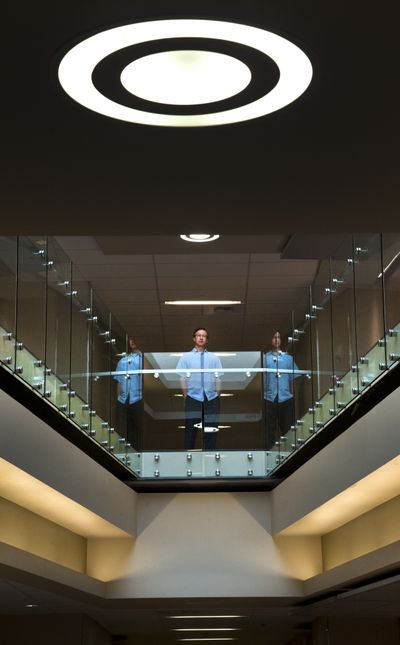EWU ‘ancient alien’ course seeks to challenge how we decide on truth

Aliens built the pyramids. They used spaceships and laser beams. In fact, aliens are responsible for most of humanity’s greatest achievements.
Or, if you’d rather, humans built them. They levered gigantic blocks of stone, dragged them across the desert and slung them on top of each other. They relied on human labor, persistence and occasional strokes of brilliance.
“I’m not saying one side is wrong or one side is right,” said Eastern Washington University history professor Edward Slack. “All I’m saying is this is what you get with the human past … our understanding of what we know about these ancient civilizations is rather fluid. It’s not set in stone.”
Slack recognizes the irony of that perspective, because in most cases he’s literally talking about stone objects. Still, in an effort to highlight the fluidity of the ancient past, Slack is teaching a new class this fall – Ancient Alien Theory: A Critical Inquiry. The whole point, he said, is to force students to evaluate what they accept as the truth.
“In this instance you have two versions of the truth, and students need to be able to figure out by themselves … where they stand,” he said.
He’s not saying that truth, or history, is relative. Instead Slack’s point is that we know little about ancient history, and many theories that are accepted as truth rely on minimal evidence.
“That’s the thing about looking at an image and trying to interpret it,” he said. “You’re going back thousands of years. We honestly don’t know what’s happening back then.”
The class will revolve around three texts that are considered foundational to ancient alien theory, also known as the ancient astronaut theory. Slack will then present the “mainstream theories” and ask students to critically analyze them. It’s a 400-level course and will be rigorous, he said.
Simply put, ancient alien theorists claim that humans have received help from aliens throughout history.
“Basically, their interpretation is that we didn’t do anything on our own,” he said. “Now, I personally don’t buy into that. It negates the creativity and intelligence of human beings.”
Slack isn’t being flippant, nor is his goal simply to attract students. Instead, he’s asking a much larger question: how and why we accept certain truths and not others.
“I’m not telling people what to think,” he said. “What I’m doing is using this as a teachable moment. This is an exercise that is intended to stimulate both hemispheres of our brain.”
A secondary aspiration of the course is to fulfill newly implemented general education requirements at EWU. The change is intended to give students more cross-disciplinary exposure, said Kevin Decker, a philosophy professor and president of the EWU faculty organization. From Decker’s perspective Slack’s course fits the bill perfectly.
Although the view of ancient history as a fluid subject isn’t always accepted by his fellow historians, Slack thinks the process-driven nature of the class is important and can serve as a valuable learning environment.
Currently, the class only has one student enrolled, with room for 24 more.
“I want students to read,” Slack said. “I want them to evaluate the evidence I present and then come to some well-thought-out conclusion about why something happens in history.”